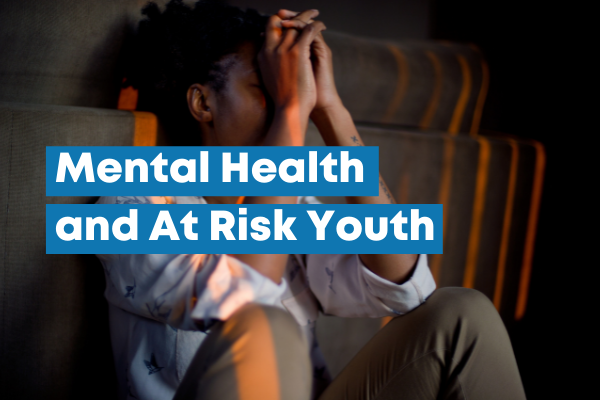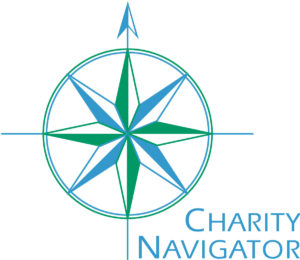May Is Mental Health Month

Since 1949, Mental Health Month has been observed as a way to raise awareness about the importance of mental health and to normalize the need for mental health support.
Mental health awareness is an important area of our work at Together We Thrive. The youth we work with are considered “at risk,” meaning they have experienced events in their lives that make it harder for them to transition successfully into adulthood and achieve economic self-sufficiency.
Our Life Coaches work in schools and youth programs across North Texas, serving more than 100 youth each week. They see firsthand the importance of mental health support for youth who have experienced trauma and challenges in their lives.
Julie, a Together We Thrive Life Coach, works with youth who have suffered abuse, neglect, or aged out of foster care. We asked Julie to share her thoughts on mental health in at risk youth, here is what she had to say.
5 Things You Should Know
1. There have been steep increases in anxiety, depression, and suicidal thoughts in youth in the last 10 years, with no corresponding increases in older generations.
Research finds that cultural trends have contributed to the increase in mental health issues amongst youth. The rise in anxiety, depression and suicidal thoughts amongst 12-17 years olds is, in part due, to the increased use of electronics and social media. Social media and electronics have changed the way that adolescents communicate and form relationships. It also contributes to a lack of sleep and cyber bullying.
2. COVID and the related consequences have been classified as causing traumatic stress in adolescents and youth, and have impacted low-income schools the most.
The pandemic tested the resilience of our youth and its effects are still yet to be fully realized. COVID-19 took away many of the day-to-day activities that helped youth thrive mentally such as spending time outside, exercising, playing sports, and playing with friends. The CDC reported that “virtual education presented more risks to the mental and emotional well-being of both parents and children.” At risk youth faced additional difficulties such as food insecurity, challenges in virtual learning, and unstable home situations.
3. Many at risk youth come from low-income families, and most have experienced adverse childhood experience (ACEs). ACEs increase their likelihood of youth developing chronic health conditions, mental health concerns, and risky behaviors.
The loss of a parent, parent mental illness, and abuse have all been shown to contribute to mental illness and associated behavioral problems such as aggression and violence in youth. According to the CDC, “toxic stress from ACEs can change brain development and affect how the body responds to stress.” This stress can cause youth to be in a constant in fight or flight mode, and overtime, reduce their ability to cope with ordinary stressors. Read more about ACEs.
4. Trauma symptoms or traumatic stress in adolescents may present as laziness, carelessness, lack of motivation, disengagement, aggression, being disruptive, restlessness, or withdrawal.
The National Child Traumatic Stress Network explains that youth who have experienced trauma may “respond recklessly, taking more risks or abusing drugs or alcohol. Withdraw from activities, places and friends in an effort to avoid reminders. Fear that their strong reactions mean they are ‘going crazy.’ Feel stigmatized by having gone through traumatic events, and feel that they cannot talk about them.
5. It is extremely common for youth to be misdiagnosed with ADHD when they really have post-traumatic stress disorder (PTSD) or trauma symptoms. Other common misdiagnoses of PTSD in youth include oppositional defiant disorder (ODD), bipolar disorder, depression, or anxiety.
Misdiagnosis often leaves youth labeled with stigmatized mental health disorders, especially bipolar, ADHD, & ODD. At risk youth are more likely to receive a misdiagnosis, receive inappropriate or subpar mental health care, and have poorer future mental health outcomes.
Helping Our Youth
We have found a few things that at risk youth need for their mental health. They include:
- A safe and secure environment,
- A caring adult to listen and validate their feelings,
- A schedule,
- Preparation for transitions,
- Social emotional learning,
- Positive relationships with safe adults,
- Gaining a sense of self,
- Time to play.
As a community, we can support the mental health for youth when we work together. When we support the mental health of our youth today, it will lead to a healthier community tomorrow.
At Together We Thrive, we strive to help support at risk youth by providing a consistent influence in their lives. Our Life Coaches are trained to support youth who have experienced trauma and may be experiencing mental health issues. As part of our mission, Life Coaches help connect youth with area resources for additional help.
When you support Together We Thrive through a one-time gift or monthly giving, you allow our Life Coaches to be in schools and youth programs across North Texas. Each week, our Life Coaches work with at risk youth to help them overcome trauma, stress and mental health concerns in order to rewrite their story and reach a place of sustainability as an adult. Your support is the difference for these youth.




